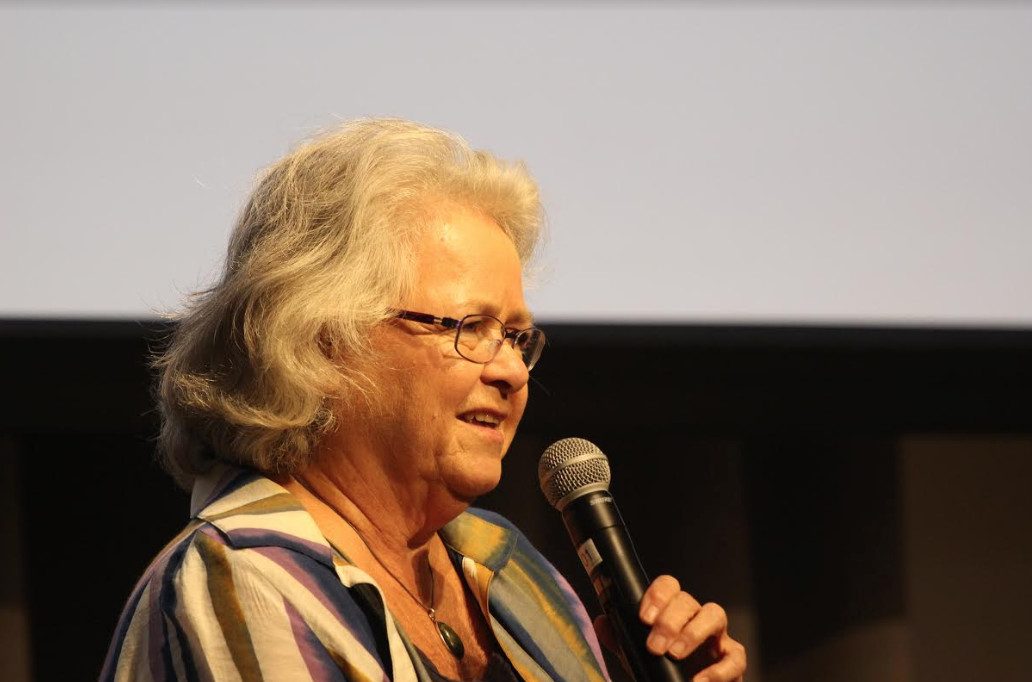Sign up for The Media Today, CJR’s daily newsletter.
In a world filled with messy skirmishes over language, Mary Norris, the New Yorker’s Comma Queen, is an unassuming monarch. She didn’t ask for the crown, and she’s not self-righteous. Speaking at Columbia University’s Graduate School of Journalism, she said that, ahead of the presentation, “I was told to ‘back off the serial comma.’ What I do have to say, though, is it’s not a moral issue.”
Norris began her comma career in the New Yorker’s editorial library, in 1978, and worked at the magazine for decades, rising to the position of “OK’er”—the one who okays a piece before it goes to press, a copy editor of the highest order who holds sway on matters of grammar, logic, and taste. It wasn’t until several years ago that she became known as the “Comma Queen,” after the New York Times called the New Yorker’s commas “nutty.” Norris embraced the title and chose it for her first book, published in 2015, a lighthearted grammar guide that weaves in autobiography.
On Tuesday, as a guest of Columbia’s Delacorte Lecture Series, she held a Blackwing pencil comfortably in hand as she told students about the mechanics of prose and a bit about her career. “I did not grow up with the ambition to be a copy editor,” Norris said. “I don’t think anybody actually does.” She worked at a public pool, in a costume shop, and driving a milk truck before she came to refine the copy of writers like John McPhee.
These days, Norris imparts her wisdom to a new generation of writers. At the event, she reminded students of the benefits of knowing linguistic history. “The word ‘minuscule’ is based on the Latin ‘minus,’ not on the word ‘mini,’ ” she said. If you can remember that, she told the crowd, you’ll never spell the word incorrectly. On commas, she offered sweeping advice: “Be attentive to putting the commas in that prevent ambiguity,” she said. Noting the decline of copyediting departments around the country, where layoffs and “restructuring” often mean the loss of grammatical expertise, she advised young journalists to be knowledgeable about the rules and humble in applying them: “If you get a job at the New York Times, just do what they want you to do!”
A young man came forward, asking Norris to settle a family dispute: Is it better to say “I am well” or “I am good”? She explained that “am” functions as a copular verb when used with “good,” an adjective; “well” is an adverb, and so reconfigures the sentence’s meaning. But nobody cares too much about that in casual conversation. “It’s vernacular to say ‘I am good,’ ” she told him. “I’d think twice before I had to put anything in writing.” She paused, then smiled. “Does that solve anything for your family?”
Publishing has plenty of militant orthographers; unlike them, Norris demonstrates an ambivalence toward the primacy of grammatical correctness. “These rules are good to know,” she told Columbia professor Keith Gessen. “It’s also good to know when to break them.”
Has America ever needed a media defender more than now? Help us by joining CJR today.



